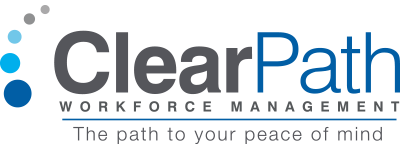As a result of recent developments, with an increase in remote working and government requests for individuals to social distance, employee morale is rapidly declining. Many employees face new challenges and may find themselves overwhelmed with the change to their normal routine, which stems from a variety of factors including remote working, children being home, and general uncertainty and worry. Many states have issued shelter-in-place orders for their citizens, but staying home all the time can be arduous.
These are unprecedented times calling for unprecedented actions and that means moving to a virtual workforce. Remote work may be here to stay now that companies have had to contend with the impact that COVID-19 is having on day-to-day operations and team interactions. Of more concern is that the virus may remain for a while, getting much worse before it gets better. The global pandemic has many fearful and you may have noticed some of your coworkers’ morale waning lately. Until a solution to contain and slow COVID-19 is found, it’s going to become increasingly important for companies to find ways to boost morale for workers. Here are some tips to keep teams feeling more positive, connected and productive.
· Keep lines of communication open
Honest and transparent communication is critical during a crisis. It’s important to address the situation with your workers from the start, even if you haven’t yet fleshed out a plan. There are many unanswerable questions. Discussing the problem upfront shows the workforce that executives, managers, and employees are all in the same boat, and all will pull together to get through the crisis with as little disruption as possible to productivity and personal lives.
· Provide a resource list for employees
If your company has an Employee Assistance Program (EAP), remind workers to use it and provide the email address or phone numbers. Some workers may need help with childcare, elder care, transportation, or other crisis-related services. Designate someone at your company to manage employee crisis resources. This person should compile, distribute, and regularly update a list of community resources where people can get assistance and information. Reliable information can be hard to come by during a crisis, and your company can serve as a beacon of light.
· Just because we’re working doesn’t mean we can’t have fun
- Share a funny story, such as, the craziest place you had to take a call – Anybody else taking conference calls hiding in a closet? Where is the weirdest place you’ve had to hide to take a call?
- Remote Work Setup Share – Have fun with your workers and have them share a picture of their remote work setup. Maybe they’ve set up camp in the kitchen or bedroom, surrounded by pets and children. This is a way to make this situation fun.
· Team wellness check-ins
Set a weekly virtual team meeting to discuss not only work-related topics but also to do a check-in to see how team members are doing. This is an excellent way for team leaders and team members to show their support for one another and to offer up tips that they find helpful in staying healthy. This is a good time to share fact-based videos and news from authority sites for discussion. Sorting through myths and keeping heads calm is important when dealing with low morale during this time.
· Virtual coffee or perks
Coffee with your team at their favorite bistro may be off the table for now, so instead, schedule a virtual coffee get-together. Leverage video conferencing software and ask your team members to grab their favorite drink and a snack, and to come prepared to share something funny or exciting. No work: just fun. Talk about your pets, something that you find engaging, like a hobby, whatever anyone wants to share. As a small pick-me-up, you may want to reward your team for being so awesome during a difficult time by offering a virtual gift card. Keep in mind that this doesn’t need to be costly; it’s about giving your team members something to look forward to.
· Include employee morale in your crisis plan
When top executives meet to establish a plan for dealing with the crisis, they need to discuss more than finances, supply chain, physical resources, and other bottom-line parameters. The plan should also include helping employees deal with the crisis, both at work and at home. Establish procedures, a budget, and a timeline to meet employee needs, whether that means purchasing technology to enable remote work, helping affected workers find short-term housing, offering extra leave to those with special needs, or whatever the situation calls for.
· Ask for feedback
While for many employers the introduction of remote working for their workforce may be unprecedented, suggestions from employees should be welcomed. While employees may not be physically present in the office, they may still have opinions over how the business is operating and how it could be improved. Asking for feedback also helps employees know that their thoughts are valued and when any issues are addressed as a result of feedback
· Be flexible and empathetic
No one knows exactly how a crisis will play out or how long it will last. This is no time to enforce rigid procedures governing absence, tardiness or dress codes. You need to be flexible and understanding toward employees who are dealing with personal and work-related upheavals. Listening to employees’ problems and helping to the degree that you can will go a long way to establishing goodwill and retention down the road.
The key is first recognizing that your teams are likely to suffer decreased morale and then making the decision to do something about it.
Even though our offices are closed during this time, our staff members are all working remotely. ClearPath cares about its employees and our clients. We treat your temporary employees as if they are our own and will always go the extra mile. ClearPath can help you design a solution pertaining to your contingent workers. We can help relieve this burden by outsourcing your back-office Human Resources and Payroll functions to our Employer of Record service. Contact us to learn more about how our expert personalized service can let you get back to focusing on your business goals. Work with a leader in the industry for outsourced Human Resources and Payroll functions associated with W-2 and 1099 contingent workers. Let ClearPath be the path to your peace of mind. For other questions about assessing your workforce or conducting a review of your current hiring processes, the ClearPath team can assist you.
- Written by: Connie Wendt
- Posted on: April 6, 2020
- Tags: EMPLOYER OF RECORD SERVICE, ENGAGING W-2 WORKERS, FORM I-9, FREELANCER, INDEPENDENT CONTRACTOR COMPLIANCE, TEMPORARY WORKER, W-2 Worker Classification, Workforce Classification

